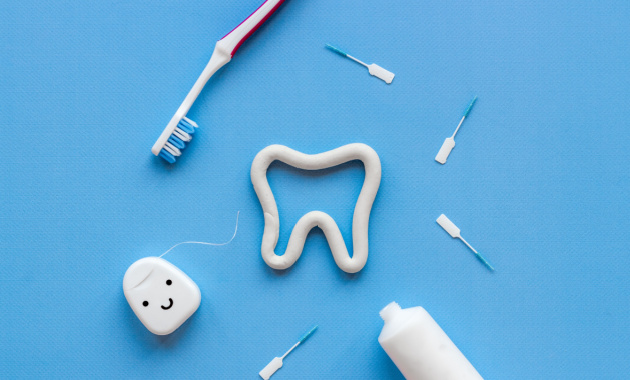
Do you know around 95% of the Indian population suffers from gum disease? It is typically caused by poor oral hygiene including improper brushing and flossing habits [1].
Oral health is an integral part of our overall well-being, and maintaining a healthy smile requires accurate knowledge and proper dental care. Unfortunately, there are several myths and misconceptions surrounding tooth and oral health that can lead to confusion and potentially harmful practices. In this article, we will debunk five of the most prevalent myths related to dental hygiene, empowering readers to make informed decisions and adopt effective oral care habits.
Here are some beliefs people have regarding oral care. Let’s compare them with the facts [2, 3].
Myth 1: Teeth cleaning loosens the gums.
Improper cleaning of teeth, especially in hard-to-reach areas in the mouth, leads to plaque and tartar buildup over your teeth surfaces and roots. Plaque is the sticky, pale yellow film that develops on your teeth, which can stay and harden into tartar within a week. Teeth cleaning helps remove this plaque and tartar. Though a temporary (healthy) space between gums and teeth is created might make you feel that your teeth have loosened. Despite this feeling, this removal makes your gums reattach to the teeth and roots, and strengthen them.
Tip: Apart from brushing you need to make flossing a part of your daily oral care routine. Without flossing, up to 40% of tooth surfaces remain uncleaned, leading to an increased risk of cavities and gum disease.
While plaque can be removed if you brush your teeth properly two times a day, tartar removal needs a visit to your dentist for teeth cleaning. Not sure of your dental needs?
Consult an expert now
Myth 2: The harder you brush, the cleaner your teeth.
Vigorous brushing or using a hard toothbrush can wear down the enamel on the teeth as well as damage and push back the gums. This may increase the risk of tooth decay and sensitivity.
Tip: Always use a soft toothbrush to scrub your teeth in circular motions gently. Remember to change your toothbrush every 3 months or sooner if the bristles are frayed.
Start taking better care of your oral health with our exclusive range of products.
Myth 3: Diet soda won’t harm my teeth as they don’t have sugar.
Soda has acid which is harmful to your pearly whites. Refrain from drinking more than 12 ounces or 1.5 cups of soda in a day [3].
Tip: Use a straw as that will keep the sugar away from the teeth.
Myth 4: If nothing is bothering you, you really don’t need to visit the dentist.
Fact: No! Dental visits are crucial for preventive care and early detection of potential issues. Dentists can identify problems in their early stages, allowing for less invasive and more cost-effective treatments. Regular check-ups also include professional cleanings to remove stubborn plaque and tartar, improving overall oral health.
Tip: Experts suggest visiting a dentist every 6 months, more frequently if you have any oral disease.
Myth 5: Poor oral health will only affect my mouth and teeth.
Your mouth is the gateway to your digestive and respiratory systems. It contains innumerable bacteria though usually harmless. Brushing, flossing and tongue cleaning help keep these bacteria in check. Failing to maintain this hygiene may transport these bacteria to other organs, causing other health problems like pneumonia and even heart disease.
Tip: To brush properly, put pea-sized toothpaste on a soft bristle toothbrush and brush for at least 2 minutes. Prefer using fluoride toothpaste as that will help prevent decay.
Final Takeaway
Dispelling myths and misconceptions about tooth and oral health is crucial for maintaining a healthy smile and overall well-being. Practicing proper dental hygiene, visiting the dentist regularly, and staying informed about oral health best practices are essential steps toward ensuring a bright and healthy smile for a lifetime.
(The article is written by Monalisa Deka, Senior Health Content Editor, and reviewed by Dr. Swati Mishra, Medical Editor)
References: